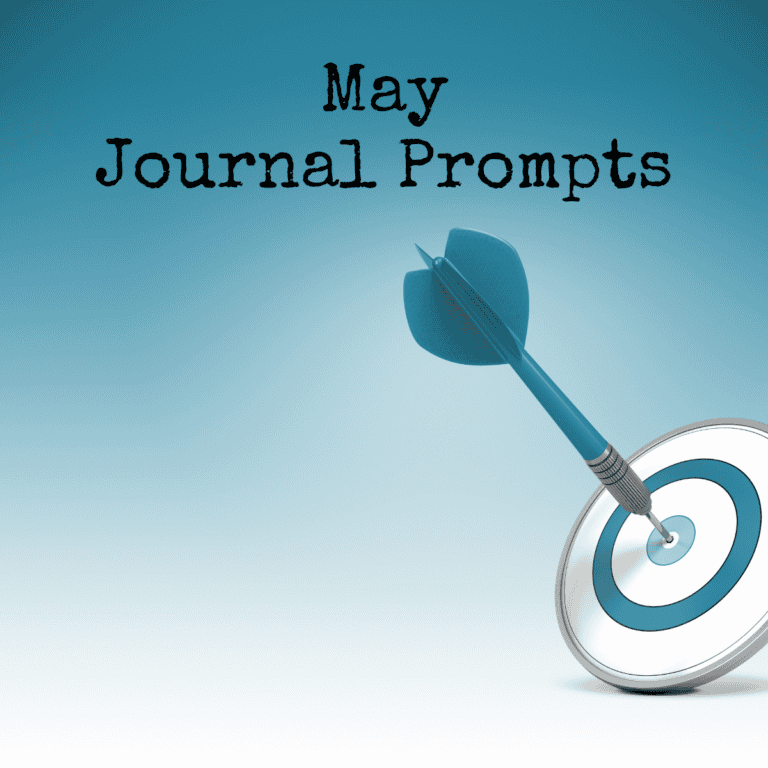Journal Prompts: What They Are and How To Use Them
Journaling is an ancient practice, adopted by philosophers, inventors, artists, and everyday people, as a path to self-discovery and reflection.
You don’t need to be a great ‘writer’, a perfect speller or write a literary masterpiece. All you need is pen and paper, and a little alone time.
However, while we might know that journaling is therapeutic, the blank page can be intimidating. This is where journal prompts come in.
This guide will explore the world of journal prompts—what they are, and the magic they can weave into our journaling practice.
What Are Journal Prompts?
Journal prompts are specific questions or statements that encourage self-reflection and thought.
Think of them as gateways to your inner world—windows that provide a focused view of a particular area of your life, thoughts, emotions, or memories.
Journal prompts can help by acting as a starting guide, assist with writer’s block and they can also push us to explore corners of our psyche we might have otherwise overlooked.
The Benefits of Using Journal Prompts
If you can journal free-hand, that’s amazing. But, sometimes, you may want to try using journal prompts to reach a different angle too.
Using journal prompts can help with:
- Overcoming Initial Hesitation:
- For many, starting is the hardest part. Staring at a blank page can be overwhelming. What if nothing meaningful comes out? Journal prompts provide a direct starting point, eliminating that initial barrier and facilitating an easier entry into the world of reflection.
- Focus:
- Journals are vast, and thoughts can scatter in a million directions. A prompt allows writers to zero in on a specific topic, event, emotion, or thought, enabling a deeper and more organized exploration.
- Personal Growth and Self-Discovery:
- With prompts urging you to ponder on different facets of your life, you’re more likely to stumble upon revelations about yourself. This deep dive can lead to better self-awareness, an understanding of desires, fears, triggers, and joys.
- Improved Mental Health:
- The act of journaling, especially when directed by prompts, is akin to a self-guided therapy session. It provides a safe space to vent, to express, to question, and to analyze. By regularly engaging with these prompts, we can gain insights into mental patterns, pinpoint stressors, and even track the progression of well-being.
Types of Journal Prompts
There are many different types of journal prompts we can use, loosely based on their purpose and the kind of reflection they initiate:
- Daily Reflections:
- These prompts are designed for day-to-day introspection. They often encourage you to assess and ponder on the events of your day.
- ‘What was the highlight of your day?’
- ‘Name one thing you learned today.’
- 48 Morning Journal Prompts: Motivation, Gratitude & A Bright Day Ahead
- These prompts are designed for day-to-day introspection. They often encourage you to assess and ponder on the events of your day.
- Emotional Exploration:
- Meant for deep dives into the emotional psyche, these prompts can often lead to powerful revelations.
- ‘Describe a time when you felt most alive.’
- ‘What’s holding you back from reaching your goals?’
- 40 Journal Prompts For Self Reflection & Self-Discovery (+Why)
- Meant for deep dives into the emotional psyche, these prompts can often lead to powerful revelations.
- Creative Expressions:
- For those who seek to infuse their journaling with imaginative thought, these prompts are ideal.
- ‘If you were a color, which would you be and why?’
- ‘Describe a world where water is the most precious resource.’
- 25 Journal Prompts For Beginners (+ Why They Work)
- For those who seek to infuse their journaling with imaginative thought, these prompts are ideal.
- Gratitude Prompts:
- In a world where it’s easy to focus on what we lack, these prompts remind us of our blessings.
- ‘List three things you’re grateful for today.’
- ‘Describe a recent act of kindness you witnessed or experienced.’
- 80+ Gratitude Journal Prompts
- In a world where it’s easy to focus on what we lack, these prompts remind us of our blessings.
- Future Visualization:
- Useful for goal setting and planning, these prompts help to crystallize your dreams and aspirations.
- ‘Where do you see yourself in 5 years?’
- ‘Describe your ideal day.’
- 45 Journal Prompts For Self-Growth (+Why You Should Ask)
- Useful for goal setting and planning, these prompts help to crystallize your dreams and aspirations.
How to Use Journal Prompts Effectively
Journal prompts are a powerful tool, but like any tool, their efficacy is determined by how they’re used.
Here are some ways to maximize their potential:
Set Aside Dedicated Time:
Prioritize your journaling. Whether it’s a quiet moment with the morning coffee or a reflective evening ritual, make it a consistent part of your day.
Create a Comfortable Space:
The environment can significantly influence your mindset.
Choose a quiet place, perhaps adorned with soft lighting, a comfy seat, and your favorite pen. Make it a sanctuary for your thoughts.
Don’t Overthink:
Your initial reactions and thoughts are often the most genuine.
Allow them to flow onto the page without judgment or over-analysis.
Be Honest with Yourself:
Your journal is a personal space, free from external judgment.
Embrace this freedom, and allow yourself to be vulnerably honest. It’s in these moments of raw truth that the most significant growth occurs.
Mix & Match:
Rotate between various types of prompts. One day could be about gratitude, the next about future dreams, and the day after that a deep emotional exploration.
This variety ensures a comprehensive and fresh journaling experience.
Examples of Journal Prompts
To help kickstart your journaling adventure or to rejuvenate your current practice, here’s a list of diverse prompts:
- If you could have a conversation with a younger version of yourself, what advice would you give?
- What’s a dream you’ve set aside? Why?
- Describe a moment in your life when you felt truly content.
- If your emotions had colors, what would today look like?
- What’s a risk you’re considering taking? What’s holding you back?
- Write a letter to someone who has deeply influenced your life.
- If you could relive a single day from your past, which would it be and why?
- How do you define success, and how does it differ from society’s definition?
- What are the top three emotions you’ve felt this week? Dive into each one.
- If life was a book, what would this current chapter be titled?
Journal prompts are more than just questions on a page.
They’re compasses, guiding you through your innermost thoughts, feelings, actions and outcomes.
By using them, you not only enhance the quality and depth of your reflections, but you also embark on a journey of self-discovery, healing, and growth.
Whether you’re a seasoned journal enthusiast or a curious beginner, the magic of prompts can enrich your experience.
Dive in, explore, reflect, and let the journey of self-discovery commence. Enjoy!





